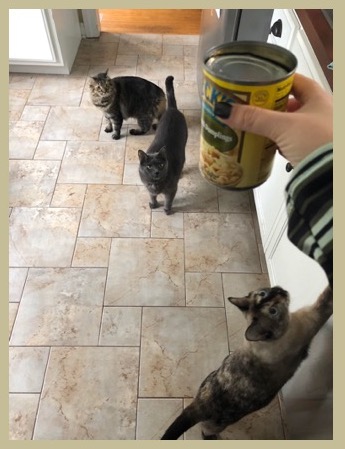Fri 31 May 2019
Old Time, she’s a-flying
Posted by PJ under caregiving, memoir, mom, writing
No Comments
Yesterday I spent nearly four hours transcribing my mother’s memoir. It’s a huge job, the bulk of which I did years ago, but I’d printed it out at a certain point with lots of footnotes asking Mom questions about things. She dutifully went through everything, often answering questions, sometimes not. Those answers are what I’ve been transcribing.
I’ve felt a pressure to get this done lately so I can pass it on to interested parties in the family—or outside. I even dreamed about it the other night. After talking to a 90-year-old relative yesterday (still perky and independent, thank the gods) it hit home profoundly that Old Time, she’s a-flying. So, I took a break from my own writing to concentrate on this.
My mom had a remarkable life in her not-quite-94 years, ranging from cattle drives and log cabins to Rosie the Riveter to the digital age and voting for the first African American president. She has a lively stream of consciousness writing style. Her sense of humor and spunk come through clearly, her sense of adventure and fun and unself-conscious grit. I wouldn’t change it for the world, but sometimes it’s frustrating. She’ll toss out stuff like going to see big bands at the Aragon Ballroom during World War II and I’ll ask her to tell me more about it: what did the ballroom look like, what did the people wear, what did the bands play, what kind of crowd was there, etc. All the telling details that make a scene come alive. Sometimes she’ll go into more detail, sometimes I can tell she’s bugged by my questions and she’ll write things like, “It was a long time ago. I don’t remember.†Or worse, “It was just an ordinary ballroom.â€
Because, of course, for her it was just an ordinary ballroom. It was hard for her to conceive of the fact that people don’t live like that anymore. Sometimes when I’d point that out to her, she’d perk up and go into nice, rich detail. But not always. My questions, I think, were sometimes a chore to her.
I keep repeating to myself as I transcribe, “She’s the writer, not me. It’s not the way I would have approached it, but this is her memoir, not mine.†And she wasn’t striving for a literary work, just a walk down memory lane to share with me and whoever else might want to read it. I’ve tried to leave things as she relayed them. On a couple of occasions when her memories overlapped mine and she’d resisted my requests for more detail, I’ve filled in the blanks trying to match her style, but I’ve kept that to a minimum. Her story, her words.
The vast majority of this was before her stroke, before the incredible time and energy suck of caregiving. Before the long, slow slide of my grief years, before I could face a project like this. Years.
After the stroke, my mom’s mind was still lively (thank the gods) and her memories intact, but her vision was seriously impaired. Her handwriting, always somewhat of a challenge, got more challenging as time went by. But still she persisted—and so do I.
I got almost all of the footnote answers transcribed. And near the end, when my own end was going numb and my stomach was growling and I thought it was time to stop for the day, I came across several more handwritten pages. More material, untranscribed. Some of it must have been written years past, long before the stroke. Others were clearly after, getting on towards the last years. I tried reading those, and it’s going to be touch and go, frankly. I didn’t despair at finding new work. I grieved that she was no longer around to clarify things, to ask for more details, to be bugged by my questions.
But that’s the ephemeral nature of existence. I’ll do my best with Mom’s legacy. I know in my heart she appreciates what I’ve already done.
But Old Time, she’s a-flying.

